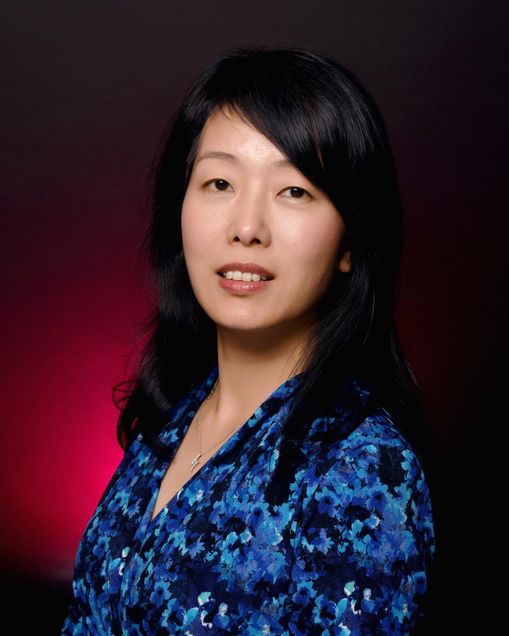Three ENG Faculty Named AIMBE Fellows
Three ENG faculty members have been elected to the College of Fellows of the American Institute for Medical and Biological Engineering (AIMBE). Associate Professor Doug Densmore (ECE, BME), Associate Professor Mo Khalil (BME), and Professor Katherine Zhang (ME, BME, MSE) will be formally inducted into the prestigious body on March 26.
The mission of AIMBE is to advance society by recognizing excellence in, and advocating for, the fields of medical and biological engineering. The institute’s College of Fellows represent the top two percent of engineers in those fields.

Densmore was selected for outstanding contributions to bio-design automation in synthetic biology. From his background in electrical engineering, he brings an expertise in computer-aided design to the development of synthetic biological parts, for example turning cells into circuits, or automating liquid-handling robots to assemble DNA. For one of his recent grants, from the National Science Foundation (NSF), Densmore is engineering living systems as smart biosensors.
Densmore is a principal investigator and founding member of BU’s Biological Design Center as well as principal investigator for the Cross-Disciplinary Integration of Design Automation Research group. He is also affiliated with the Rajen Kilachand Center for Integrated Life Sciences & Engineering and the Rafik B. Hariri Institute for Computing and Computational Science & Engineering.
“It is an honor particularly for someone with a PhD in electrical engineering,” Densmore says of his selection as AIMBE fellow. “Really shows how diverse and interdisciplinary biomedical research has become.”

The AIMBE College of Fellows elected Khalil for outstanding contributions to our understanding and engineering of genetic circuits that control cellular behaviors. Like Densmore, Khalil works in synthetic biology and is a founding member of the Biological Design Center. (Both are involved in the Living Computing Project, a National Science Foundation–funded effort to create a toolbox of catalogued biological parts that can be used to engineer organisms with predictable results.)
Khalil creates living colonies, for example of bacterial cells and yeast, that can be programmed to perform complex tasks. In one of his projects, supported by the Department of Defense’s prestigious Vannevar Bush Faculty Fellowship, Khalil is researching epigenetic memory, the process by which cells pass on information to the next generation of cells. His findings will inform how he programs synthetic cells.
“It’s truly an honor—and frankly a surprise —to be selected to join this illustrious fellowship of medical and biological engineers,” says Khalil. “I am delighted that there is increasing excitement and recognition in the field of synthetic biology, and in the tremendous potential synthetic biology holds to address grand challenges in human health.”

Zhang was selected for outstanding contributions to the understanding of how multiscale extracellular matrix (ECM) mechanics and mechanobiology drive vascular physiology and pathophysiology. The ECM is the network of composite material in the space outside cells. In particular, Zhang studies the ECM in blood vessels. Combining imaging experiments and computer modeling, she has shed light on the complex interplay at work in the structure and mechanics of arteries, gaining insights into cardiovascular disease as well as diabetes.
Zhang is also associate chair for graduate programs and a past Clare Boothe Luce Professor. She has been the recipient of the Defense Advanced Research Projects Agency’s Young Faculty Award and the NSF CAREER Award, and she is a fellow of the American Society of Mechanical Engineers.
On becoming an AIMBE fellow, Zhang says, “I feel honored to be among the most accomplished and distinguished medical and biological engineers.”
Additional reporting by Colbi Edmonds